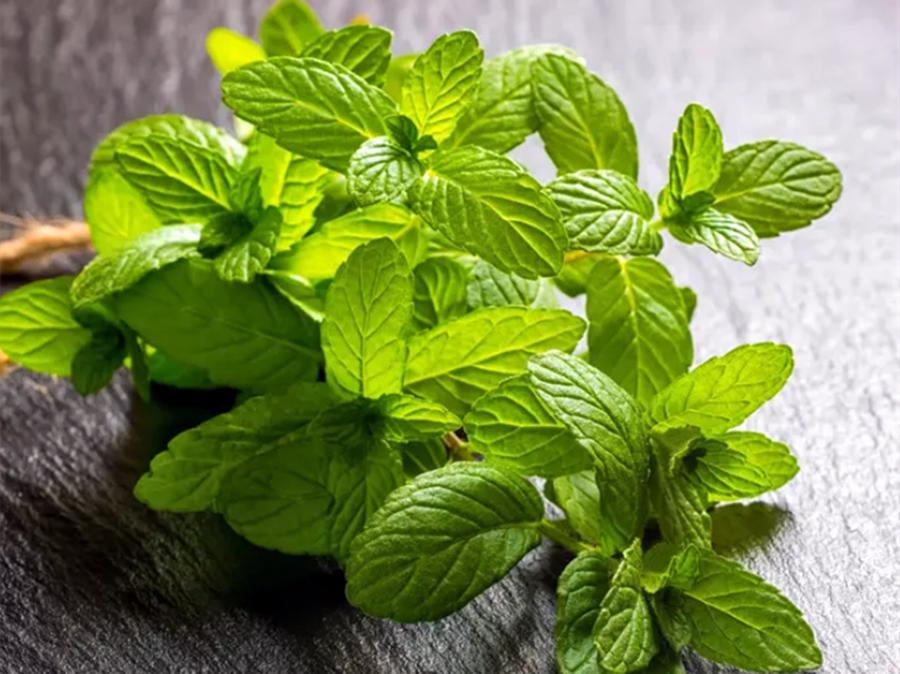Lemon balm (Melissa officinalis L. ) is a perennial herb from the mint family native to southern Europe and the Mediterranean. People often use their leaves to make tea, medicine and flavor foods because they have a mild lemon aroma. It has been used for thousands of years and is considered a mild sedative, anxiolytic, and memory aid. Studies showed that the plant contains polyphenols and monoterpene glycosides, which are known to have therapeutic effects on humans. Here today, follow us to discover more benefits of lemon balm (Melissa officinalis) tea.
Good Sedative Properties
The leaf of Lemon balm contains compounds that have antiviral and anti-inflammatory properties and has been used for centuries to treat conditions related to heart palpitations, depression, and mood disorders. Some people believe that this plant is an effective way to improve memory and reduce anxiety. In animal studies, hydro-alcoholic extract of Melissa officinalis had sedative effects on the central nervous system. A 600 mg dose of standardized Melissa officinalis extracts improved mood and calmness in human studies.
Other studies indicate that lemon balm is beneficial for insomnia and stress. Lemon balm is also safe for children and can reduce the amount of crying experienced by colicky babies. However, when assessing lemon balm’s sleep benefits, it’s important to keep in mind that too much of it can make you feel more anxious. Research indicates that 0.3 grams of lemon balm per day is enough to achieve this effect.
Its positive effect on mood can extend to a woman’s sexual desire. In one study, women with hypoactive sexual desire disorder were given 500 mg of lemon balm twice a day for a month. The placebo pills had no effect.
Good Antispasmodic Properties
The antispasmodic effects of lemon balm inhibit smooth muscle contractions in the gastrointestinal tract. A 1999 clinical study suggests that lemon balm is effective for treating a variety of gastrointestinal disorders, especially those related to the digestive tract.
Insect Bites Treatments and Good For Skin
Lemon balm is a powerful herb that is able to reduce the pain and swelling of insect bites. It can be eaten or crushed to release the beneficial oil. You can also apply the leaves to the affected area. A lemon balm extract is also helpful for treating insect bites. For bee stings, lemon balm essential oil mixed with almond oil is applied to the affected area.
Another study suggests that lemon balm may reduce pain and inflammation caused by herpes. Its antiviral properties are proven by European research, and it has shown promise in the treatment of shingles and cold sores.
Good Insect Repellant
The lemon balm also has the added benefit of being an effective repellent for insects. The lemon balm herb contains citronella-like compounds, which make it a useful addition to herbal no-bug balms. Crushed lemon balm can be used as a natural insect repellent. The aroma of lemon balm is said to ward off mosquitoes, black flies, and other insects.
Strong Antioxidant
The herb’s medicinal properties are primarily associated with enhancing cholinergic transmission. It binds muscarinic and nicotinic acetylcholine receptors. Its broad spectrum of antioxidant activity has led researchers to believe it may be useful in preventing or treating oxidative stress-related diseases. Further research is needed to fully understand the mechanisms of Melissa officinalis.
The antioxidant capacity of lemon balm makes it a potent treatment for various diseases. Inhibiting the production of VEGF-A in the body may aid in the prevention and treatment of certain types of cancer. In addition, it inhibits the activity of certain inflammatory proteins, which are known to cause pain. Although these benefits are still largely unconfirmed, research shows that it can help manage various diseases, including Grave’s disease and overactive thyroid.
Good For Premenstrual Syndrome
Apart from reducing stress, Faranak SD and colleagues examined this herb for its potential to alleviate symptoms of premenstrual syndrome. Women who suffer from PMS are highly susceptible to painful symptoms during this time, and lemon balm is said to reduce the severity of these symptoms. Another study found that Melissa officinalis supplementation reduced symptoms of premenstrual syndrome among high school students. The herb was also used in the treatment of patients with mild to moderate Alzheimer’s disease. The findings from this research are promising.
- Dandelion Extract: What It Is, Benefits, Uses and Side Effect - April 23, 2024
- Is Berberine Extract Help For Weight Loss? - April 11, 2024
- Why Is Pysllium Husk Powder A Popular Meal Replacement Ingredient? - April 3, 2024



